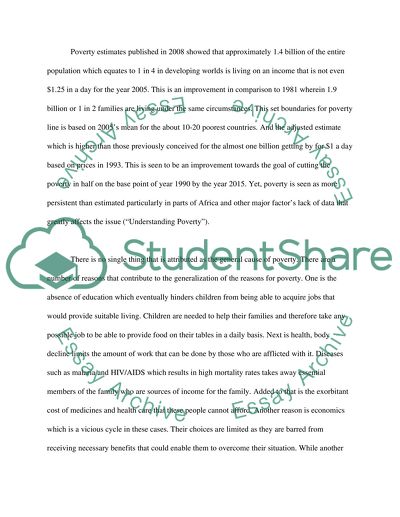Cite this document
(“How effective are the strategies to end poverty Research Paper”, n.d.)
Retrieved from https://studentshare.org/miscellaneous/1553663-how-effective-are-the-strategies-to-end-poverty
Retrieved from https://studentshare.org/miscellaneous/1553663-how-effective-are-the-strategies-to-end-poverty
(How Effective Are the Strategies to End Poverty Research Paper)
https://studentshare.org/miscellaneous/1553663-how-effective-are-the-strategies-to-end-poverty.
https://studentshare.org/miscellaneous/1553663-how-effective-are-the-strategies-to-end-poverty.
“How Effective Are the Strategies to End Poverty Research Paper”, n.d. https://studentshare.org/miscellaneous/1553663-how-effective-are-the-strategies-to-end-poverty.


